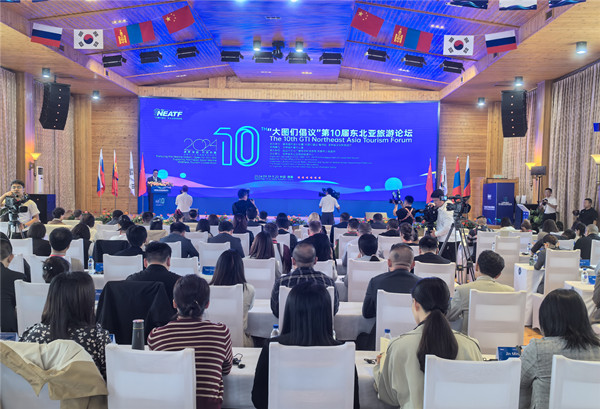
The 10th GTI Northeast Asia Tourism Forum opens on Sept 19 in Jilin province. [Photo provided to gojilin.gov.cn]
The 10th GTI Northeast Asia Tourism Forum was held on Sept 19 in Hunchun, Northeast China's Jilin province. GTI members discussed enhancing cross-border tourism routes and developing sustainable eco-tourism projects.
The Greater Tumen Initiative (GTI), supported by the UNDP, includes China, Russia, South Korea, and Mongolia. It aims to promote economic cooperation and cross-border projects in Northeast Asia.
Hunchun, located at the easternmost tip of Jilin province, is a unique tri-border city between China, Russia, and North Korea. Krepskii Arsenii, deputy minister of Primorsky Territory Ministry of Tourism, highlighted the importance of tourism cooperation with Hunchun, noting that more than half of the Chinese tourists in the region enter through this gateway.
The newly launched Northeast Asia Changlyu Sightseeing Railway Express has also attracted domestic and foreign tourists, showcasing the potential for multilateral cooperation.
Mongolian tourism expert N. Bolormaa emphasized the country's focus on eco-tourism based on natural and archaeological heritage, with plans to significantly increase tourism's GDP contributions by 2030.
GTI Programme Officer Sergey Khidirov stressed the initiative's goal of expanding tourism projects, streamlining border procedures, and enhancing eco-tourism. Russia proposed creating a Northeast Asia Eco-Tourism Route Handbook, gaining support from all members.
The forum also saw calls for improved visa policies, cross-border investment cooperation, and streamlined procedures to boost regional tourism collaboration.







